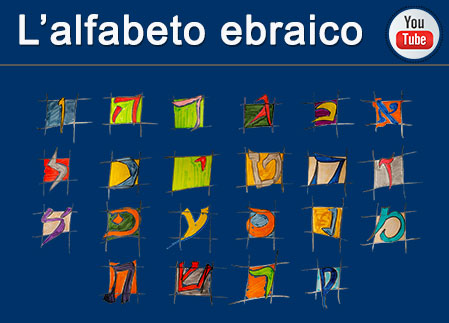Center for Jewish-Christian Understanding and Cooperation
Stati Uniti d'America 28/01/2009
One of the first things Pope Benedict XVI did in his young papacy in 2006 was to visit the extermination camp at Auschwitz-Birkenau. His visit testified to the unfathomable evil of the Final Solution to exterminate the Jewish people and it sanctified the memory of those murdered in the Nazi gas chambers. During his meditation, he stated that Hitler understood that to kill God they had to first destroy God’s witnesses, the Jewish people.Pope Benedict’s visit to the place so central to Jewish suffering and memory touched Jews. It filled them with hope that the new pope would continue the holy work of Popes John XXIII and John Paul II to heal the antagonism between the Church and the Jewish people, to put an end to the false rivalry between Christianity and Judaism and to be faithful to the pronouncements of the Second Vatican Council that Jews remain in living covenant God and that the Church condemns anti-Semitism in any form.
Unfortunately a number of recent Church events cast reasonable doubt on the Church’s resolve to continue progress toward Catholic-Jewish reconciliation:
(1) the reauthorization of the Tridentine Mass with its prayer “for the conversion of the Jews,”
(2) the renewed campaign to elevate Pope Pius XII to sainthood before the complete historical record of his papacy can be studied and while questions persist regarding whether Pius did all that was possible to save Europe’s Jews from extermination
(3) the public statement by Cardinal Renato Martino, President of the Pontifical Council for Justice and Peace, comparing the Gaza Strip to a "huge concentration camp"—with its ineluctable and invidious implication that Israel’s war against Hamas terrorists bears moral similarity to Nazi policies, and
(4) Pope Benedict’s’ readmission of four Lefebvrite prelates to the Church by overturning John Paul II’s excommunication of them. Lefebvrites reject much of Vatican II’s teachings and many have overtly anti-Semitic views. Lefebvre himself wrote to John Paul II in 1985 that “Jews were declared enemies of the Church.” One of his bishops, Bernard Tissier de Malllerais wrote that, “Jews are the most active artisans for the coming of the Antichrist.” And one of the newly rehabilitated prelates, Richard Williamson, has taught repeatedly since 1989 that “Jews were responsible for changes and corruption in the Catholic Church,” that “not one Jew perished in Nazi gas chambers” and that “the Holocaust was a myth.” In 2000 he went on record suggesting that the libelous anti-Semitic tract, “The Protocols of the Elders of Zion” was authentic, and just prior to Benedict’s lifting of Williamson’s excommunication on January 21, Williamson announced on Swedish television that the Nazis never used gas chambers on Jews.
Whatever the Church motives for these developments, they surely trample on Jewish sensibilities and historical memory, inflaming the wounds that Jews bear from their long painful experience of Christian persecution. They raise historically warranted Jewish fears that the former Church policy of aggressively targeting Jews for conversion will be revived, that anti-Semitism will be morally and politically rehabilitated within the Church, that the teaching of contempt will again become acceptable, that the progress in Catholic-Jewish relations made possible by Vatican II will be rolled back, and that through silence the Church will indirectly support the denial of Hitler’s satanic extermination of six million Jews at Auschwitz and the other killing centers in the heart of Christendom. The Israeli Chief Rabbinate has cancelled out of the scheduled March meeting with Vatican officials, and the Italian Rabbinate has withdrawn from dialogue with the Church because of these fears.
It is not the business of Jews to tell Catholics what to pray or who belongs within the Church. These are wholly internal Catholic matters. Yet Jews deserve to know where the Church stands on the above issues. Since Benedict has personally sponsored reintroducing the Tridentine liturgy and lifting the Lefebvrite excommunication, only the Pope will be able to put these justified Jewish concerns to rest. Only he has the power to heal the fresh Jewish wounds and repair the breach in Catholic-Jewish dialogue so important for both communities—and for the world.
This time of crisis is no time for silence or ambiguity. We urge Pope Benedict to address the Jewish people in clear and unequivocal terms that the Church will not return to an active policy of targeting Jews for conversion, that in the eyes of the Church Jews remain in loving relation with God through the covenant made at Sinai, that as Pope John Paul II said repeatedly, “anti-Semitism is a sin against God,” and that the Church forcefully rejects any denial of the Holocaust, which profanes the sacred memory of those made in the image of God—Jews and Christians alike—who were murdered by the Nazis in their atheistic rejection of God’s moral law.
If the Pope can do this, Jews and Catholics can renew their journey of mutual understanding through dialogue and will be able to stand together as witnesses for God’s loving presence and enduring authority on earth.
Rabbi Dr. Shlomo Riskin
Chancellor, Center for Jewish Christian Understanding and Cooperation (Israel)
Rabbi Dr. Eugene Korn
American Director, Center for Jewish-Christian Understanding and Cooperation (Israel)
David Nekrutman
Executive Director, Center for Jewish-Christian Understanding and Cooperation (Israel)
(Thanks to fr. M. Watson and E. Korn)
2505 visualizzazioni.
Inserito 01/01/1970
Relazioni Ebraico-Cristiane
Ultime novità nel sito
- 19/04/2020: Articolo - L’enigma della Maddalena
- 23/02/2020: Articolo - Il locus amoenus nelle catacombe ebraiche e cristiane di Roma
- 16/02/2020: Articolo - Il profetismo nel Vicino Oriente antico
- 13/02/2020: Articolo - I Profeti della Cappella Sistina
- 09/02/2020: Articolo - Gerusalemme e la Terra Santa di Israele


